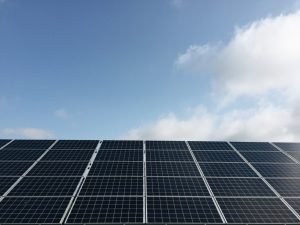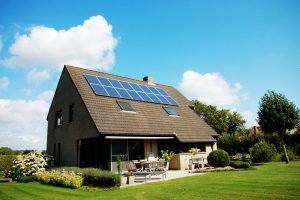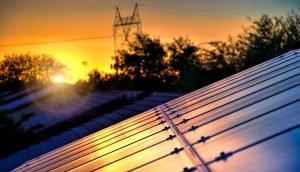Are solar panels worth it? Discover the true value of solar panels!
Have you ever wondered if investing in solar panels is truly worth it? With the growing popularity of renewable energy sources, many homeowners are considering making the switch to solar power. However, the decision to install solar panels involves various factors that should be carefully considered. In this article, we will explore the benefits and potential drawbacks of solar panels, helping you determine if they are worth the investment for you. So, let’s shed some light on this topic and explore the world of solar energy!
Explore the financial and environmental benefits. Are solar panels worth it? Find out here!
Cost of solar panels
Upfront cost
When considering whether solar panels are worth it, one of the main factors to consider is the upfront cost. Investing in solar panels initially requires a significant investment, as the cost of purchasing and installing the panels can vary depending on the size of the system and the specific needs of your property. However, it’s important to look at the long-term benefits and savings that solar panels can provide.
Return on investment
Although the upfront cost may seem daunting, solar panels offer an excellent return on investment over time. By generating your own electricity, you can significantly reduce or even eliminate your monthly electricity bills. This means that the money you would typically spend on utility bills can now be redirected towards paying off the initial investment. In many cases, homeowners find that their solar panels pay for themselves within a few years, leading to long-term savings and financial benefits.
Long-term savings
Solar panels not only offer immediate savings on your electricity bills, but also provide long-term savings throughout their lifespan. On average, solar panels last 25 to 30 years, meaning that you can enjoy free electricity for decades after the initial cost is recouped. Over the lifespan of the panels, the savings on electricity bills can be substantial, which makes the investment in solar panels a wise financial decision.
Explore the benefits, cost savings, and environmental impact. Are solar panels worth it? Find out now!
Environmental impact
Reduced carbon footprint
One of the most significant benefits of solar panels is the reduced carbon footprint they offer. Solar energy is a clean and renewable source of energy that does not release harmful greenhouse gases into the atmosphere. By installing solar panels, you can contribute to a more sustainable future and help combat climate change. The electricity generated from solar panels is environmentally friendly and helps to reduce the overall carbon emissions associated with traditional energy sources.
Renewable energy source
Solar energy is a renewable energy source that is abundant and accessible. Unlike fossil fuels, which are finite and contribute to global warming, solar energy can be harnessed as long as the sun shines. By utilizing solar panels, you become a part of the clean energy movement and contribute to a more sustainable energy future. Solar panels provide a reliable and consistent source of energy, ensuring that you have access to power even during times of high energy demand or grid outages.

Government incentives and rebates
Federal tax credits
To make the investment in solar panels more attractive and affordable, the government offers various incentives and rebates. One of the most significant incentives is the federal solar Investment Tax Credit (ITC). This credit allows homeowners to deduct a portion of the cost of installing solar panels from their federal income taxes. The current ITC is set at 26% of the total cost of the system, which can result in significant savings and help offset the upfront cost of solar panels.
State and local incentives
In addition to federal incentives, many states and local governments also offer their own incentives and rebates for installing solar panels. These incentives can vary depending on where you live and can include cash incentives, property tax exemptions, and sales tax exemptions. It’s important to research the specific incentives available in your area to maximize your savings and reduce the overall cost of installing solar panels.
Net metering programs
Many utility companies offer net metering programs, which allow homeowners with solar panels to earn credits for excess electricity generated by their system. During periods of high solar production, when your panels generate more electricity than you consume, the excess energy is sent back to the grid and credited to your account. These credits can be used to offset your future electricity bills, further reducing your energy costs and increasing the financial benefits of solar panels.
Energy independence
Reduced reliance on utility companies
By investing in solar panels, you can reduce your reliance on utility companies for electricity. Instead of solely relying on the grid, solar panels allow you to generate your own power, giving you greater control over your energy needs. This not only provides an added sense of independence but also protects you from potential power outages or fluctuations in energy prices.
Protection against rising energy costs
Over the past few decades, the cost of electricity has been steadily increasing. By generating your own electricity through solar panels, you can protect yourself from the impact of rising energy costs. Once your solar panels are installed, you can enjoy a fixed and predictable electricity rate for the lifespan of the system, providing stability and peace of mind.

Maintenance and durability
Long lifespan
Solar panels are designed to withstand various weather conditions and have a long lifespan. On average, solar panels can last 25 to 30 years or more, with many manufacturers providing warranties for at least 20 years. This means that once your solar panels are installed, you can rely on them for decades without worrying about frequent replacements or repairs.
Minimal maintenance
Solar panels require minimal maintenance, making them a hassle-free investment. Generally, the only maintenance required is occasional cleaning to remove dirt or debris that may accumulate on the panels. Most solar panel systems are designed to be self-cleaning to a certain extent, with rainwater helping to wash away any build-up. Additionally, there are no moving parts in solar panels, reducing the risk of mechanical failures and the need for regular upkeep.
Aesthetics and property value
Enhanced curb appeal
Solar panels can enhance the aesthetics of your property, giving it a modern and environmentally friendly look. The sleek and clean design of solar panels can add a touch of sophistication to your home, increasing its curb appeal. Many homeowners find that solar panels are a valuable addition to their property, blending seamlessly with the overall design and architecture.
Increased home value
Installing solar panels can also increase the value of your home. Studies have shown that homes with solar panels typically sell for a higher price compared to homes without them. Homebuyers are increasingly looking for properties that offer energy-efficient features and cost-saving benefits. Therefore, investing in solar panels can not only provide immediate savings but also increase the overall value and marketability of your home.
Location and climate
Sunlight availability
The amount of sunlight available in your location is an important factor when considering if solar panels are worth it. Solar panels rely on sunlight to generate electricity, so it’s essential to assess your location’s solar potential. Areas with more consistent and direct sunlight throughout the year are ideal for maximizing the energy output of solar panels. However, even regions with variable weather conditions and less sunlight can still benefit from solar panels, as they continue to generate electricity even on cloudy days.
Weather conditions
Solar panels are designed to withstand various weather conditions, including rain, wind, snow, and hail. It’s important to consider the weather patterns in your area when evaluating the durability and performance of solar panels. While extreme weather events can potentially damage solar panels, the design standards and warranties provided by reputable manufacturers ensure that the panels can withstand the elements and continue to generate electricity even in adverse conditions.

Financing options
Purchase outright
Purchasing solar panels outright is an option for those who have the financial means to make the upfront investment. By paying for the system upfront, you can take advantage of the immediate savings and long-term financial benefits of solar panels. While this may require a significant initial investment, it offers the highest return on investment and the freedom to utilize and benefit from the electricity generated by the panels.
Leasing or Power Purchase Agreements (PPAs)
For those who prefer not to make a large upfront investment, leasing or entering into a Power Purchase Agreement (PPA) can be viable options. In a lease agreement, the solar panels are owned by a third-party company, and you pay a fixed monthly lease fee to use the panels and access the electricity they generate. With a PPA, you agree to purchase the electricity produced by the solar panels at a predetermined rate. While these options may not offer the same financial benefits as owning the panels outright, they can still provide savings on your electricity bills and reduce your environmental impact.
Solar loans
If you prefer to own the solar panels but don’t have the funds to make a cash purchase, solar loans can provide a convenient financing option. Solar loans are specifically designed to help homeowners finance the installation of solar panels. These loans typically offer favorable interest rates and terms, allowing you to spread the cost of the panels over a fixed period. By using a solar loan, you can enjoy the benefits of solar panels while spreading out the payments and managing your budget effectively.
System size and energy needs
Calculating energy requirements
Before installing solar panels, it’s important to assess your energy requirements to determine the appropriate system size. Factors such as the number of occupants in your home, energy-intensive appliances, and overall energy consumption should be taken into consideration. By analyzing your energy needs, you can ensure that the solar panel system you install is capable of generating enough electricity to meet your requirements, leading to optimal savings and benefits.
Determining proper system size
The proper system size for your home depends on multiple factors, including your energy needs, available roof space, and budget. Consulting with a reputable solar installer or conducting a site evaluation can help determine the appropriate system size for your property. It’s important to strike a balance between system size and cost, ensuring that your solar panel investment aligns with your energy goals and financial capabilities.
Personal preferences and priorities
Desire for sustainability
For many homeowners, the desire for sustainability is a significant factor in considering solar panels. By embracing solar power, you become an active participant in the transition to a cleaner and greener energy future. Solar panels offer a tangible way to reduce your carbon footprint and contribute to a more sustainable world. If sustainability is a priority for you, the environmental benefits of solar panels can outweigh the initial cost and provide a sense of satisfaction in making a positive impact.
Interest in new technology
Solar energy is a cutting-edge technology that continues to evolve and improve. If you have an interest in new technology and innovation, investing in solar panels can be an exciting venture. The solar industry is constantly advancing, with research and development focused on increasing efficiency, reducing costs, and improving overall performance. By embracing solar panels, you can become an early adopter of this transformative technology and benefit from the latest advancements in solar energy.
In conclusion, solar panels are undoubtedly worth it for homeowners who are looking to reduce their carbon footprint, save money on their electricity bills, and increase their energy independence. While the initial cost of installing solar panels may seem high, the long-term benefits, such as return on investment, long-term savings, and increased property value, make the investment worthwhile. Additionally, government incentives and financing options make solar panels more affordable and encourage their adoption. Considering personal preferences, location, and climate can help determine if solar panels are the right choice for you. By embracing solar energy, you become a part of the sustainable energy movement and contribute to a cleaner and more resilient future.

